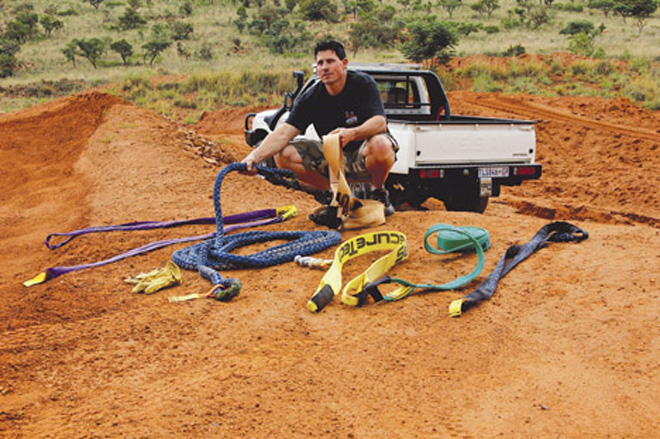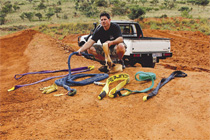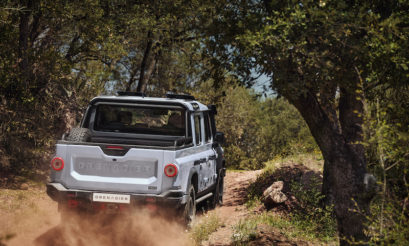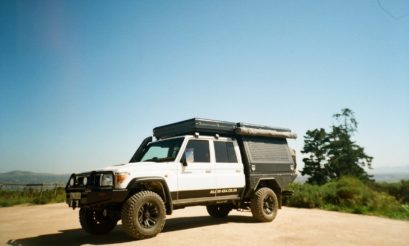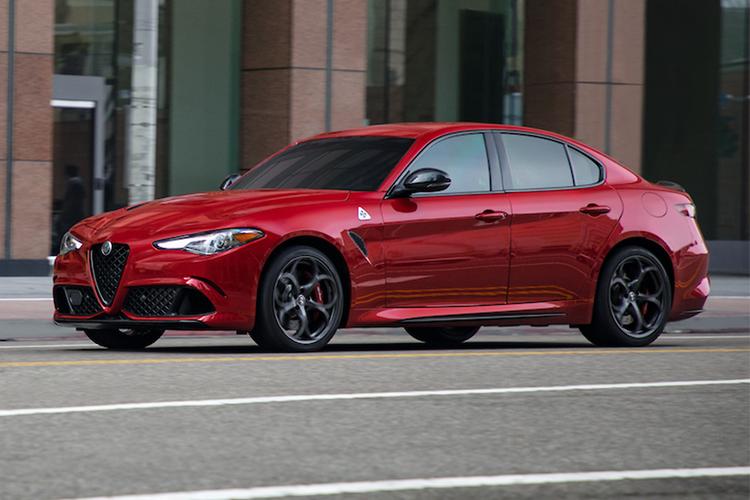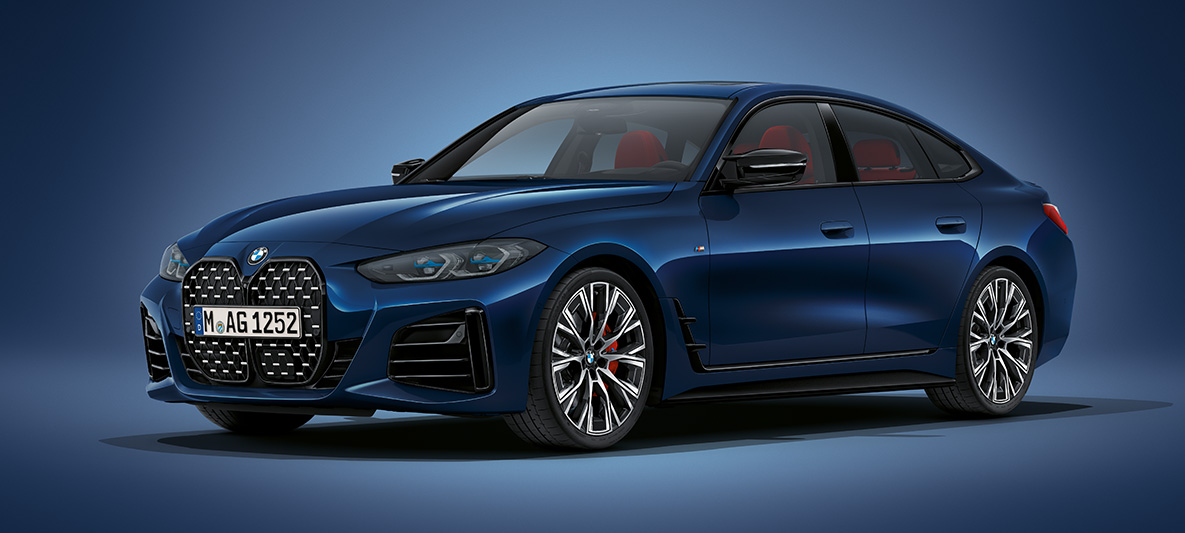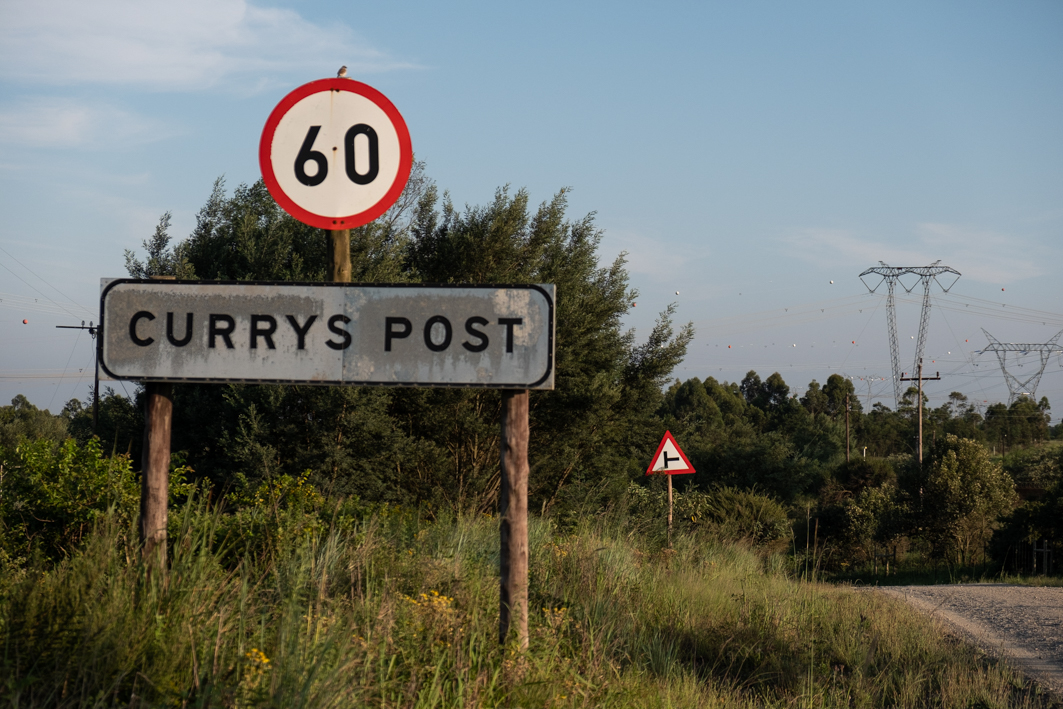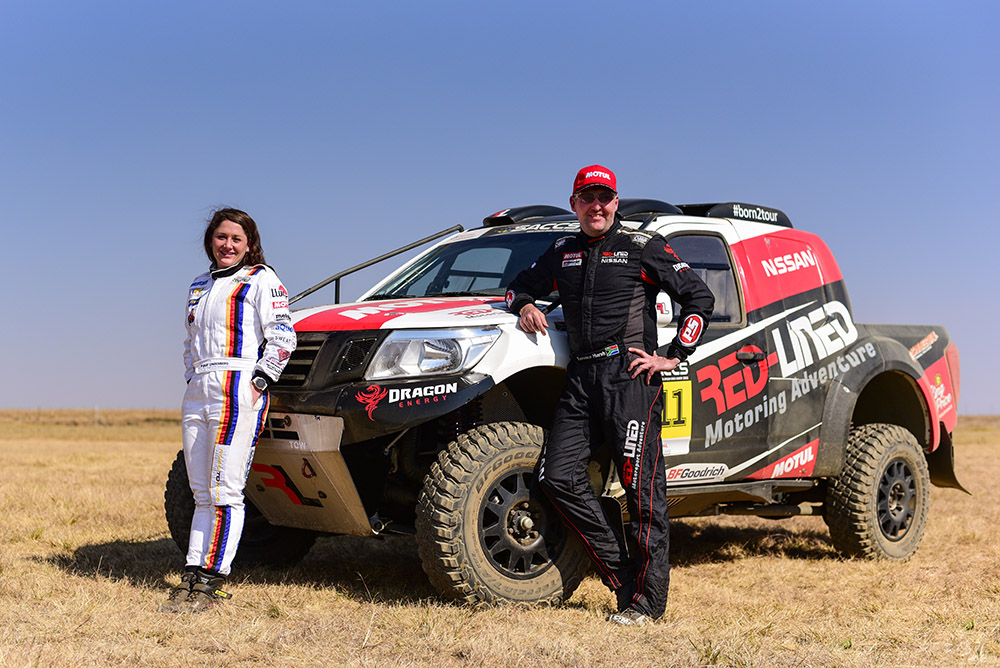Text: Stephen Smith
Photographs: Peter Primich
It’s been whispered around campfires for years now, rumours of a threat to the way of 4x4ing life we know and love. It’s been rumoured that you’re going to have to get a special licence just to own a 4×4. Some say that a 4×4 tax is headed our way. Others say that the beach ban is going to be extended to include the bush, the mountains, and everywhere else worth driving. Still others say that nothing at all is going to happen, and people are just being alarmist. So what’s the truth behind the fireside buzz?
Basically, the fact is that government is instituting a Driver Competency Certificate (DCC) for 4×4 drivers. This is being done at the insistence of the Department of Environmental Affairs and Tourism (DEAT), for the same reason that the beach ban was implemented – certain individuals are abusing the environment.
The National Off-Road Workgroup (NOW) represents all of the stakeholders involved in the 4×4 industry, from trail owners to 4×4 instructors and 4×4 manufacturers. It has been working for a number of years alongside the DEAT, trying to come up with a strategy that will be beneficial, or at least acceptable, to all parties involved.
The mission of NOW is as follows: “to ensure the sustainability of Africa’s treasure trove of resources through the education of our members and to prevent its selfish destruction through over utilisation and ignorance.” With this in mind, it is easier to accept why a DCC is being implemented, and what its purpose is.
There is absolutely no doubt that a DCC system is going to be implemented, and it could happen as soon as 8 to 12 months time. But that doesn’t mean that you will have to have a DCC to own a 4×4, or even to drive it. According to Glyn Demmer of NOW, a DCC will only be required to drive in ecologically sensitive areas, “areas like the whole of the Richtersveld national park, and the 4×4 routes in the Kruger national park will require a DCC.
“But the strategy also uses co-regulation. Because the government doesn’t have the capacity to police this, it goes into a partnership with other parties involved. So if you’re a trail owner, you ensure that the people who use your trail do so responsibly. If you’re a tour operator, you see to it that the people on your tours act responsibly. So a group of people can go off-road in an environmentally-sensitive area even if they don’t all have DCCs, as long as they are being led by a tour-leader who has a DCC, and who accepts responsibility for them.”
One question that arises is what constitutes an environmentally-sensitive area. All national parks are sensitive areas, but DEAT has yet to finalise exactly what else constitutes a sensitive area. They have certain definitions, or environmental characteristics, such as flood lines and rivers, but they are more concerned with geographical location, such as if an area of mountains has fynbos growing in them, then that whole area is defined as environmentally sensitive. Therefore many of the trails in the Wakkerstroom area and in the Western Cape will be declared environmentally-sensitive areas.
We also spoke to Jonathan Hartman, an accredited trainer who has been closely involved in the DCC process. “To be declared a competent driver, and to obtain a DCC, you have to go out and complete a course, be assessed, and loaded onto the national learners’ database. This is not a 4×4 course as we know it, but one that has been specially formulated for the DCC.
“What has been developed is a set of unit standards for 4×4 training, under the auspices of the Transport SETA (Sector Education and Training Authority), which is called TETA. These have now been finalised, so everything needed for a training facility to be recognised, instructors to be accredited, and course contents recognised has been finalised and implemented.
In fact, as it stands a member of the public can already go to an accredited facility and be trained, and receive a recognised Driver Competency Certificate. But at the moment there are just a handful of such accredited facilities and trainers.”
The process looks complicated, involving a Facilitator (basically an instructor or trainer), an Assessor (who assesses the learner, deciding if they are competent enough to pass and receive their certificate) and Moderators (who oversee the assessors).
Only the facilitator, or training provider, can upload the learner on the national learner database. Even the facility on which you are trained has to be accredited for your certificate to be valid. But a DCC affiliated course will run like any other course. You will be trained and tested, and if you pass you will receive a certificate, and the world is your oyster, to be used responsibly.
But there is also a shortcut in the DCC process, called Recognition of Prior Learning (RPL). If you’ve been driving off-road for many years, or are an experienced off-road driver, then you can be assessed (tested), and possibly receive your DCC without further training. This will save both time and money.
Most of the 4×4 courses available today are NOT sufficient, and cannot issue a DCC. The training has to be held by a recognised, TETA accredited trainer, on a recognised, accredited training facility. The learner then needs to be assessed by an accredited assessor.
One major issue that faces the 4×4 community will be dealing with unscrupulous trainers who aren’t accredited, but who offer “accredited” courses anyway, often at high prices. No one wants to waste their money doing a course that is actually useless. Imagine thinking you’re DCC competent, and driving all the way to the Richtersveld, only to be told that your certificate isn’t good enough to get into the park.
The only answer is for members of the public to do some research before signing up for a DCC course. They should phone one of the people in the know (see below), and check whether the course they are thinking of doing is worthwhile. The trainer must have a service provider TETA number, as well as the two unit standard numbers, on his license. After completing a course, TETA will send you your DCC certificate, saying that you have passed and are competent.
In simple terms, Driver Competency Certification IS going to happen, and it could be in place in less than a year. It doesn’t mean you need a DCC to buy a 4×4, or to drive it. But without a DCC you will be limited to the areas you can explore and enjoy with your 4×4. In our opinion, there is no option but to go ahead and do the training, allowing yourself the opportunity to go where you want to in full accordance with the law.
Contact details:
Jonathan Hartman, The Training Connection: 082 574-0955; [email protected]
Glyn Demmer: 083 399-3565; [email protected]
National Off-Road Workgroup: www.now.org.za
Transport Education and Training Authority (TETA):
Gauteng: 011 781-1280
KwaZulu-Natal: 031 207-4462
Western Cape: 021 531-3064
